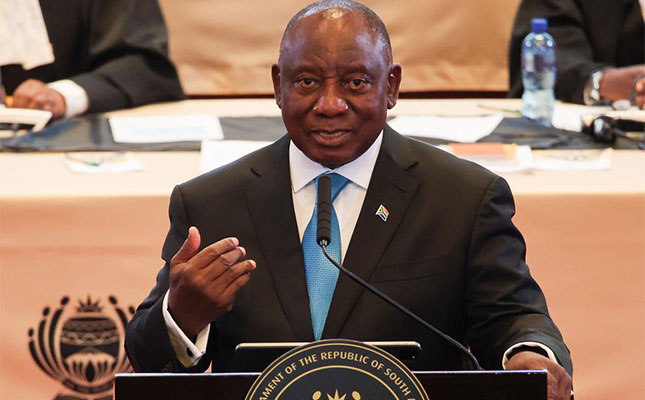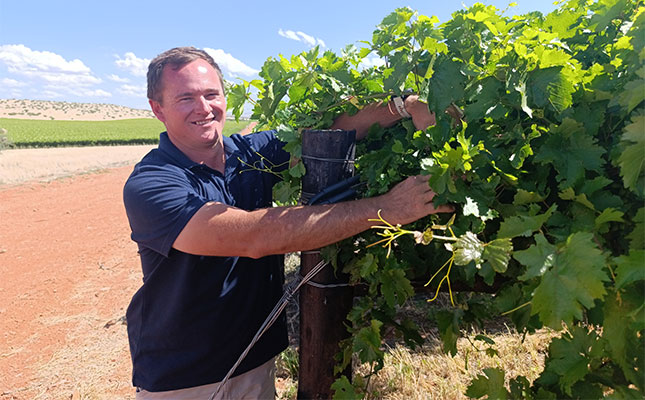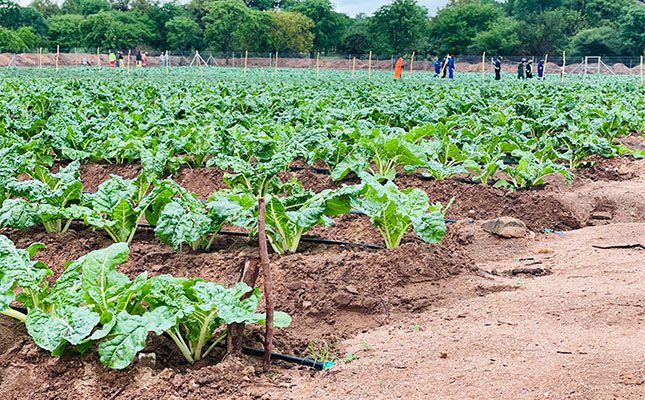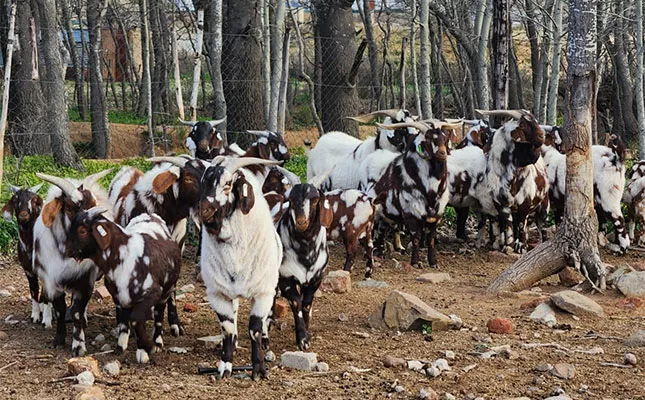
Ronel Retief farms on the family farm Klawervlei, located between Richmond and Graaff-Reinet in the Sneeuberg mountains of the Northern Cape. The homestead sits at around 1 750 m above sea level, with some parts of the farm much higher, and temperatures of as low as -19°C have been recorded. She uses 600ha to 800ha for her goats, while the remainder of the 9 000ha farm is devoted to mixed livestock farming.
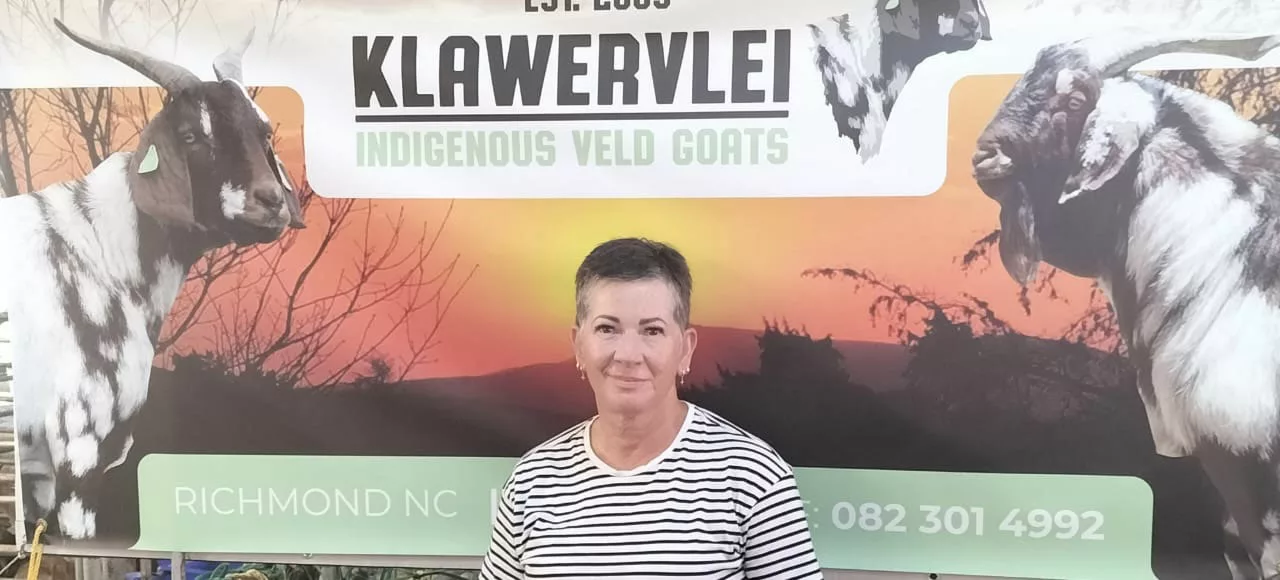
The Klawervlei flock comprises 90 ewes, 78 of which are registered with SA Studbook, along with 22 young ewes aged 10 to 12 months awaiting official adjudication. Four Klawervlei rams are registered with SA Studbook, and the flock also includes 15 young rams of between seven and 19 months.
According to Retief, the young rams are kept away from the ewes, as she only uses three-year-old rams for breeding.
Top prices
The quality of the Klawervlei stud is underpinned by the fact that Retief achieved an outstanding price of R130 000 for K20-81, a five-year-old Cape Lob Ear ewe with triplets at the 2025 Indigenous Veld Goat (IVG) sales held in Bloemfontein earlier this year.
This was the highest price for a ewe at the sale. Two other Klawervlei ewes, K20-63 and K20-62, fetched R60 000 and R55 000, respectively.
It is Retief’s mission to retain the inherent genetic quality of the breed and to breed Cape Lob Ears that maintain superior productivity, uniformity, and value for money.
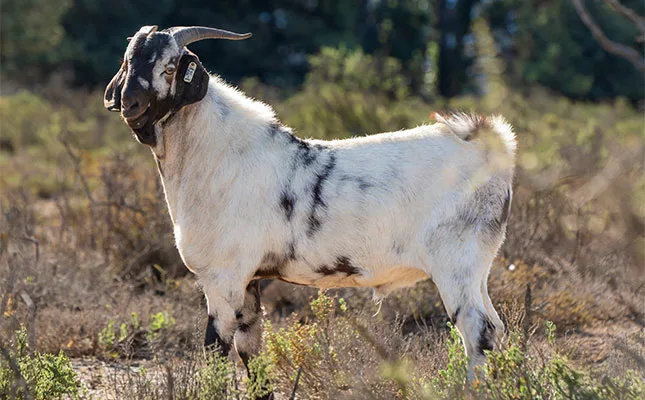
“I fully endorse the IVG Breeders’ Society’s stance that the goats should not be spoiled, transformed, or improved out of existence. That is why my breeding philosophy is based on keeping the goats true to type through well-thought-out breeding practices.
“My journey with the breed started in 2009, on my 40th birthday, with 18 mixed-breed ewes and one ram,” she explains.
The goats are kept in 15 camps of between 30ha and 40ha each, with a water point in every camp. The sourveld grazing comprises typical Karoo herbaceous shrubs, including resin bush and three thorn, while grass species include tall fescue and suurpol. The camps also have vlei areas. Average annual rainfall in the area is 350mm.
Genetic integrity
“Not long after I acquired my first goats, I realised that I had made a mistake by initially buying animals that were, in my inexperienced eye, beautiful without considering their genetic value. This meant I was left with a flock of crossbred goats.
“After a year, I culled the unwanted members of the flock and only kept the Cape Lob Ears, augmented by animals sourced in the Eastern Cape. The Lob Ears perform extremely well under the severely cold winter conditions on the Sneeuberg. Lambing problems are practically unheard of, the dams are first-class mothers, and the breed is highly resistant to parasite infestation,” explains Retief.
The Klawervlei animals are kept on the veld during the day and kraaled at night, where they are checked and counted daily. They don’t receive any supplemental feed, although heavily pregnant ewes and new mothers are kept on planted pastures.
Lambing is usually planned for summer, but a devastating drought in 2024 forced Retief to keep the rams with the ewes for a longer period, resulting in the lambing season starting in mid-June this year.
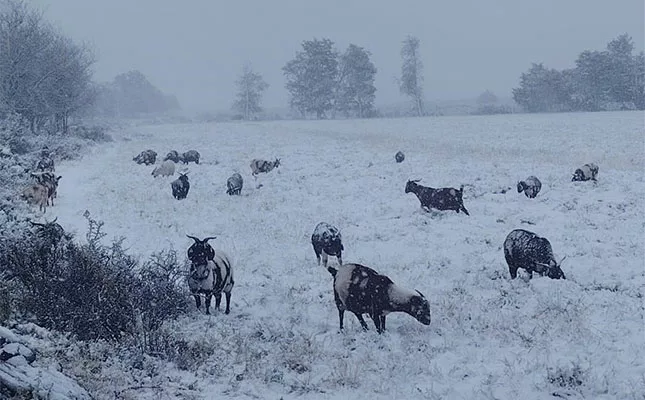
Hardy and adaptable
“The adaptability, hardiness, and inherent genetic value of the breed that has been honed over millennia truly came to the fore in the winter of 2025. The ewes kept condition despite the excruciating conditions, grazing normally even when their coats were covered in snow.
“Because of the unforgiving conditions, I provided the lambing ewes with extra feed in the form of pellets. Normally, ewes with a single lamb remain on the pastures for about a month, while mothers with multiple lambs stay until the smallest lamb is strong enough to join the flock,” she continues.
Retief maintains two lambing seasons, usually from February until the end of April and from October to December, using single-ram mating. To ensure only well-developed, proven animals are sold, the Klawervlei ewes are only offered from four years of age.
She keeps detailed records of each birth, puts rams to ewes from three years old, and gives young ewes that fail to drop and raise a lamb after the first breeding season a second chance. Older ewes that fail are culled without exception.
“The animals from the Eastern Cape formed the cornerstone of my stud. I also started by breeding my own rams in a line-breeding system.
“One of the genetic highlights for the stud was the purchase of the ram Simson and three in-lamb ewes from breeder Jurgens Conradie of Aroab in Namibia in 2019. Simson is the father of the ewe K20/81. I also recently brought in three new ewes to develop a new gene pool for rams, as the demand for rams far exceeds the supply in South Africa,” explains Retief.
For more information email Ronel Retief at [email protected].
Get trusted farming news from Farmers Weekly in Google Top Stories.
➕ Add Farmers Weekly to Google ✔ Takes 10 seconds · ✔ Remove anytime
